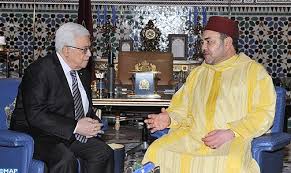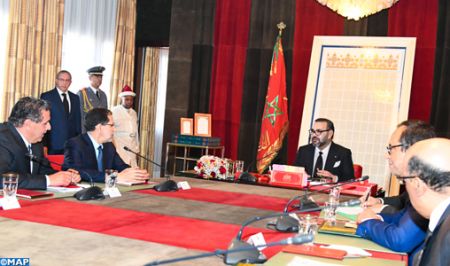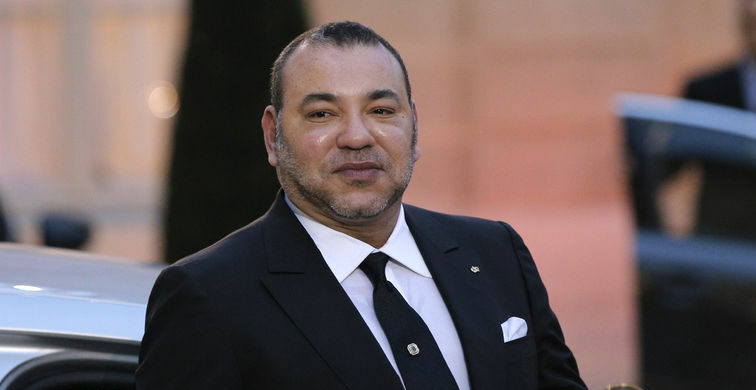 King Mohammed VI has reiterated condemnation of the Israeli settlement policy, which jeopardizes prospects for achieving the two-state solution.
King Mohammed VI has reiterated condemnation of the Israeli settlement policy, which jeopardizes prospects for achieving the two-state solution.
This came in a message to the chairman of the United Nations Committee on the Exercise of the Inalienable Rights of the Palestinian People, on the occasion of the International Day of Solidarity with the Palestinian People.
King Mohammed VI, who is the chairman of the Al-Quds Committee, reaffirmed that the Palestinian cause remains the most important issue for the Arab and Muslim World and expressed condemnation for Israel’s attempts to alter the status of Al Quds.
“It was my hope and the hope of the Palestinians – indeed of all freedom-lovers around the world – that 2017 would see the end of the Israeli occupation so that efforts could be focused on the practicalities of the peace agenda. However, the other party has sought to divert attention towards secondary matters, which are the natural outcome of a colonial policy and of an intensification of settlement activities, both of which create fertile ground for violence and extremism,” regretted the King.
He held the Israeli Government accountable for the status-quo in light of its rejection of a host of peaceful solutions, including the 2003 Road Map, which was adopted by the Security Council, and the French initiative, which led to the Paris Peace Conference earlier this year.
After citing multiple violations by Israeli occupation forces of fundamental rights of the Palestinian people, the King warned that the “the ever expanding construction of illegal settlements is an enemy of peace.”
He added that “such illegal activities have increased at an alarming rate since the beginning of 2017, not to mention the retroactive legitimization of settlement outposts, in blatant defiance of Security Council resolutions and in violation of all international instruments and resolutions relating to the Palestinian issue. It is therefore legitimate to wonder: Is there still room for the establishment of a Palestinian State that would live side by side with Israel?”
The King also warned of turning the Palestinian-Israeli political dispute into a religious conflict saying that “the changes Israel has systematically introduced with respect to the historical status of al-Quds and the al-Aqsa Mosque amount to playing with fire.”
“Indeed, the Israeli practices are likely to arouse sentiments of religiously motivated hostility, which could lead to a violent religious conflict. I therefore call once again on Israel to respect the historical and legal status of the holy sites in the city which has been occupied since 1967, and I reiterate our rejection of Israel’s decision to annex it,” the King underscored.
On inter-Palestinian relations, the Monarch said that he has “stressed, on many occasions, the need to end the state of division and to opt, resolutely and in good faith, for a national unity Government that would shoulder its responsibilities towards the Palestinian people and serve as the sole, credible interlocutor in any endeavor with the international community to end the ordeal and the injustice suffered by the Palestinians.”
“Today, after years of division and scattering of efforts, our Palestinian brothers have concluded a reconciliation agreement. We cannot but welcome that. It is a step in the right direction – one which is likely to help end the state of division and restore the spirit of national unity, as a prelude to fulfilling the Palestinian people’s aspirations for an independent State, with al-Quds as its capital,” said King Mohammed VI.
He expressed hope that the Palestinians will continue to consolidate their unity and to close ranks in order to serve the Palestinian national agenda.
The Monarch concluded with a plea against occupation which he described as “a blot on the conscience of Israel and the international community. The latter has a legal, political, moral and humanitarian responsibility to end the occupation as well as Israel’s illegal practices in the Palestinian territories. Those practices are the main reasons and arguments put forward by terrorist groups to justify their criminal agenda in the region and in the world.”


